It's a crisp 7am at the Whakatāne depot and Jan and Lee Pryor are riffling through parcels, swapping them into the right van.
The seaside town is mostly still asleep. It's Saturday after all. However, Lee has been up since about 4.30am. He likes to get to the depot early, usually by 5.30am.
It's a routine Lee has down to a tee, although I'm sure he'd never admit it.
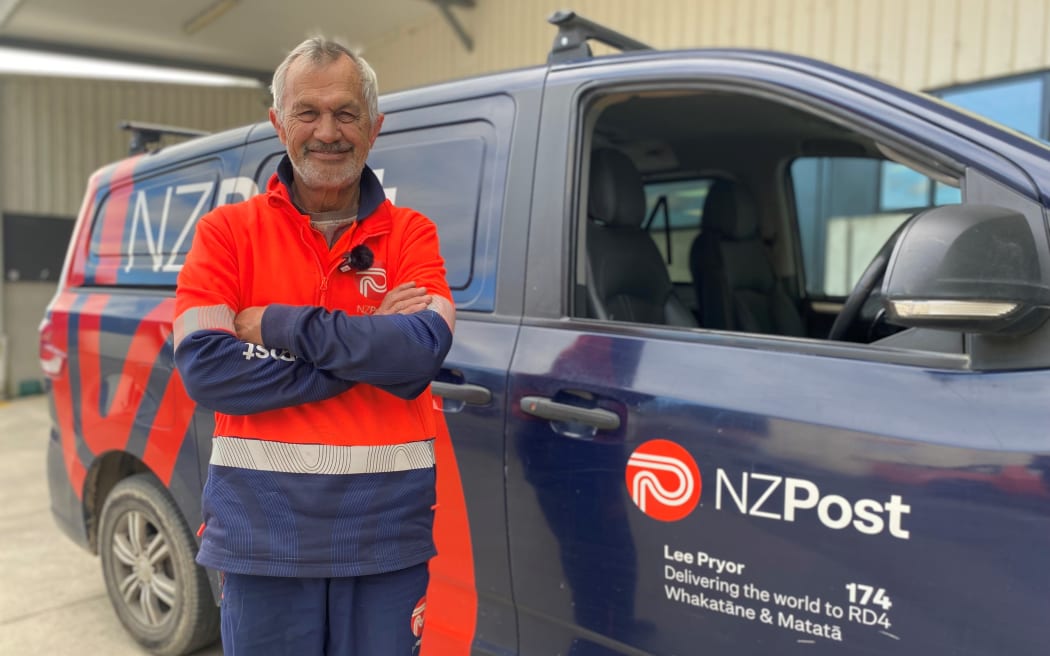
Lee Pryor is the third generation to deliver post along the Whakatāne coastline and Matatā township. Photo: RNZ/Leah Tebbutt
But that is what happens when you show up to work, six days a week, for 25 years "delivering the world" to rural Whakatāne and Matatā.
That's 25 years without counting the odd day helping his Koro or Mum when they both had the rural postal route many moons ago now.
It means Lee is the third generation to own the postal run along Whakatāne coastline and up the Pikowai straight.
When you count one of his three children helping him out throughout the years, it means four generations of Lee's whānau have taken the role of postman for their community.
With parcels and papers loaded, I join Lee in the van ready for the day to begin. Boxes tall and small and packages wide and thin line the floor of the van. It is packed, or so I believe.
Lee informs me it is quite the opposite. Being a Saturday, there is no mail delivered, only parcels. And with his wife, Jan now sharing the run, half the packages are in the back of her rural post ute.
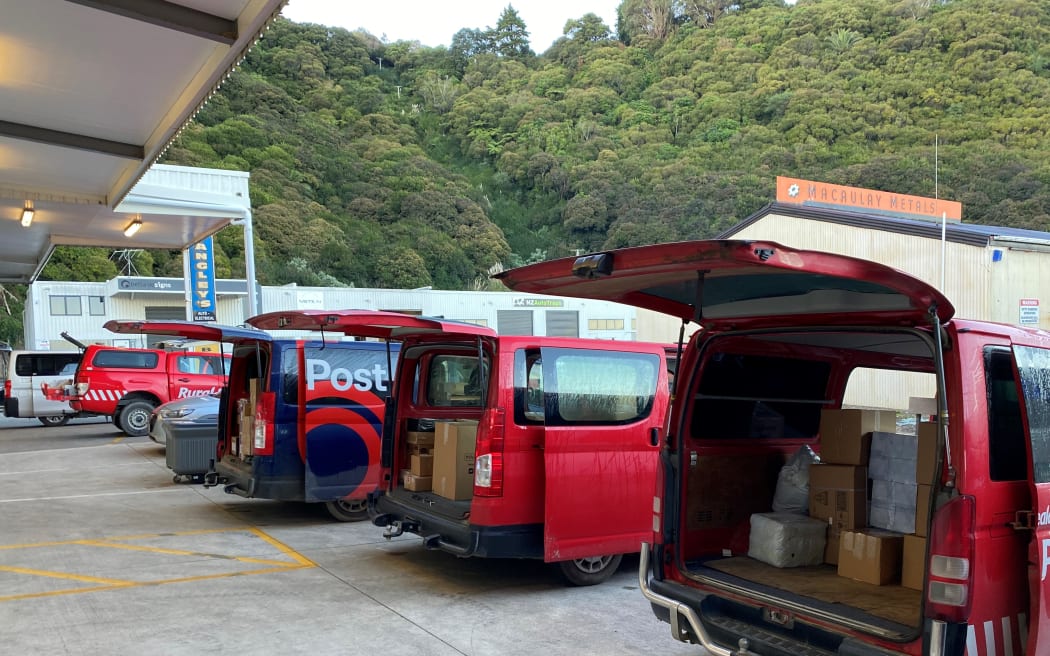
Postal vans packed with mail and parcels for the day ahead. Photo: RNZ/Leah Tebbutt
Before we go our separate ways, Jan shares she has only been on the job for three months.
"Everybody's discovered online shopping with Covid, so it became quite long days for him [Lee].
"We decided it was either, he was going to have to give up the run and find something else, or I came and helped. And actually, this was a much better alternative."
Now Lee sticks to delivering to Thornton, the Matatā township and Manawahe. It leaves the second part of Thornton, along the beachfront, plus the Pikowai straight and the odd road up into the hills to Jan.
"It's actually not as long as Lee, but then he's a lot better at it than I am. He's got a bit more experience," she laughs.
"Twenty-five years more."
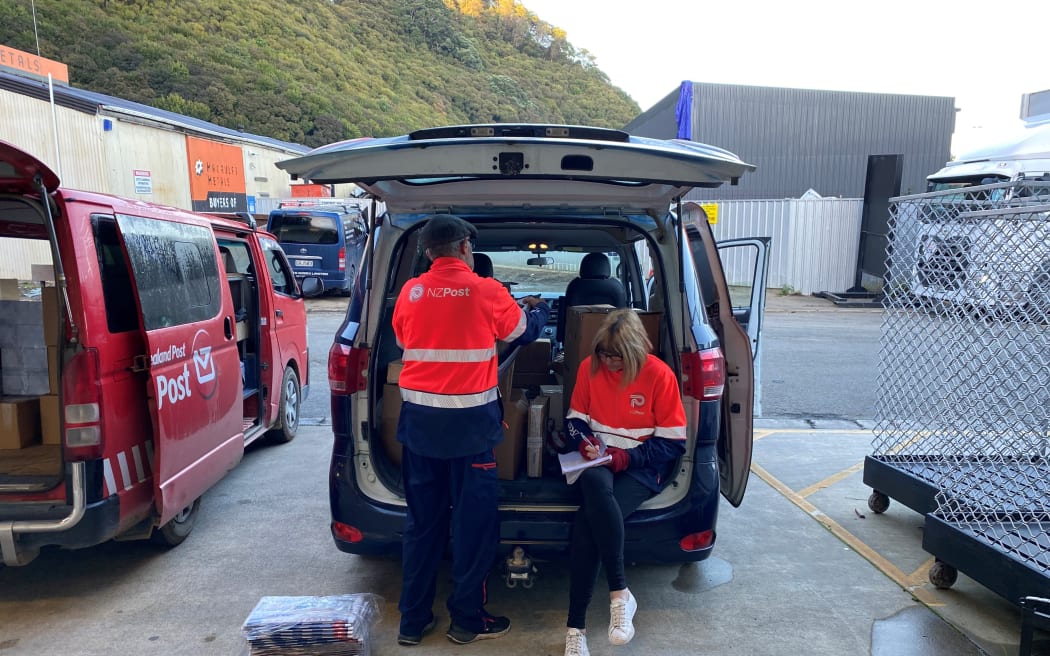
Lee (left) and Jan Pryor sorting mail for their shared route. Photo: RNZ/Leah Tebbutt
Jan says there have been two times in her life when she wondered how their relationship would turn out - one when the children left home and again when they started working together.
"And we found we actually quite liked each other."
At about 40 years old Lee was about to join the police force. He worked in the forestry and kiwifruit industry up until that point.
However, his mother wanted to retire and she thought it would be a much better idea for Lee to take over the postal run than join the police.
And so that is what he did.
With a few deliveries under our belt, Lee and I start chatting about the whānau links.
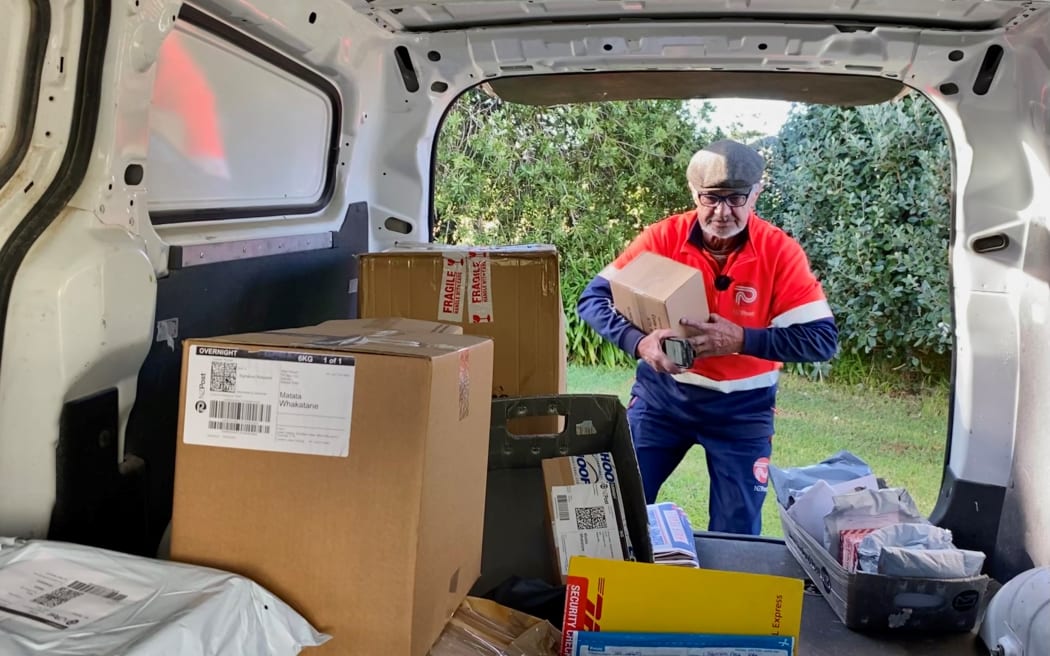
Lee Pryor busy delivering parcels along the Whakatāne coastline. Photo: RNZ/Leah Tebbutt
"She [mum] enjoyed people. Where the run was, was where we used to live so she knew everybody. She was a funny wee thing, Mum, she didn't like doing nothing.
"She wasn't a very good housewife, she always had to be working."
Lee cannot quite recall but knows his mum had the run a few years after taking it over from her dad, Lee's koro.
He was 80 when he passed the reins on. It wasn't his first time trying to retire either. Rugby, Lee's koro, used to own a taxi, a picture theatre and a corner store before taking over the run from extended whānau.
"I used to go out with him now and again. I can just remember the dust and a van full of groceries, milk and bread and mail.
"We'd go to the house and if the people weren't there he would put the milk in the fridge and the frozens in the freezer. It's just what he did."
Not much has changed in 25 years since he took it over, Lee would say, apart from the excessive number of parcels from online shopping and the number of cars on the road.
He has also noticed farmers have become the minority on his rural route, with more farms sold into subdivisions or carbon farming.
And the number of letter boxes has also changed, he adds.
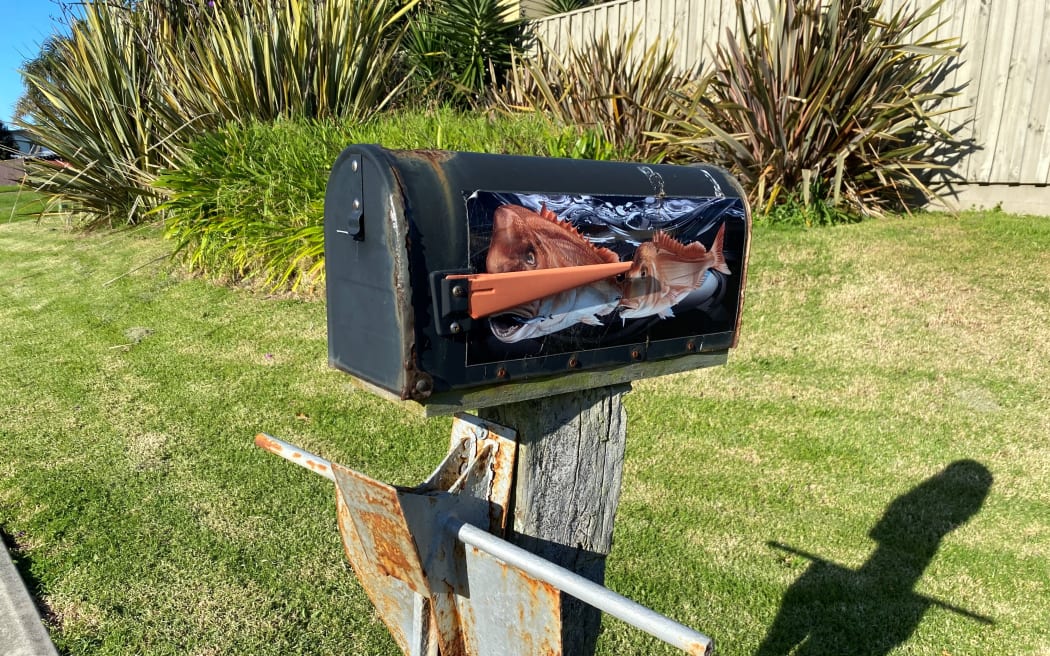
One of the many more creative mailboxes seen on the rural postal route. Photo: RNZ/Leah Tebbutt
"There were 178 boxes when I took it over, and now it's 630 odd. There are probably thousands of letters a year now, but when I started it would've been hundreds of thousands."
Instead of letters, Lee now delivers countless parcels each day. But they're not all clothes or flatpack furniture as you might expect.
He says casks of wine and pet food have to be one of the most common deliveries he makes.
It's ironic, as almost every home has a noisy dog waiting to greet him. Some are friendly, and some are not so friendly.
It's the little ones though with a consistent yap that have nipped Lee around the ankle.
A pair of rottweilers fearlessly bark at Lee from the deck, but he's not concerned. They've never come down from the deck, not that there is anything stopping them.
Around the corner, two german shepherds, old police dogs, in fact, make a commotion when Lee arrives. It saves him from having to enter the property, as the owner of the dogs, and the parcel soon wanders out thanks to the canine alert.
Not too far up the road Lee reverts to a loud whistle, instead of a knock at the door, to avoid the dog. He leaves the parcel behind the small fence.
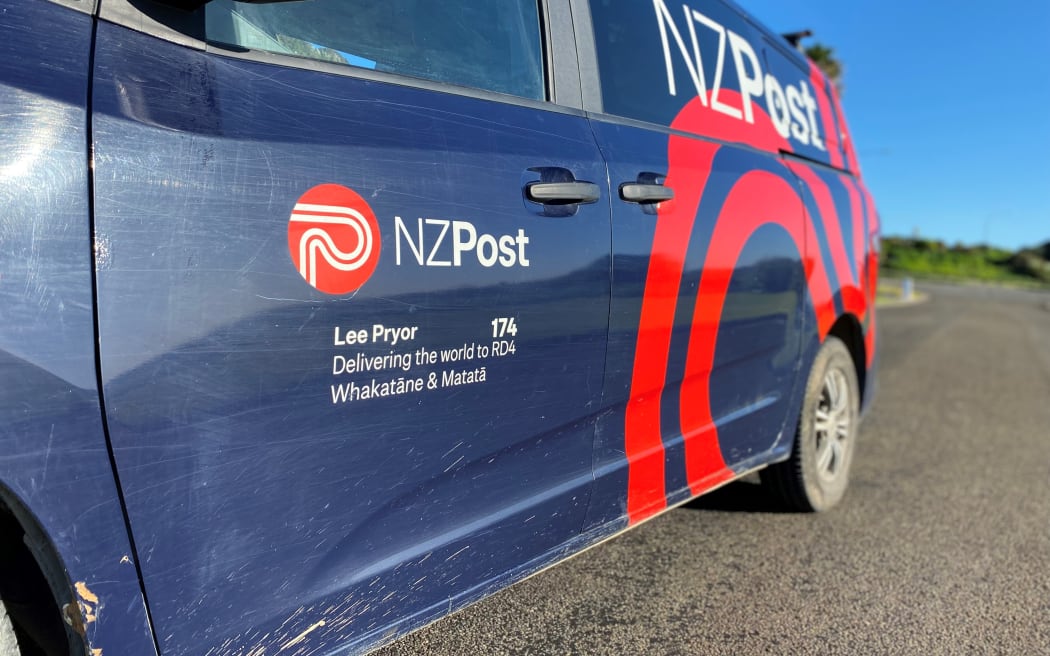
Lee Pryor has had nine vehicles in his 25 years. Photo: RNZ/Leah Tebbutt
"Some are just nut cases," Lee says back in the van.
"Generally most of them are alright, you get to know the dogs. Some bark and growl and carry on, but that's about it."
After making our way around the township, it's up to Manawahe.
In the week it would take around three hours just to get around Matatā. This morning it's done and dusted in no longer than one and a half hours.
The days are undeniably long. Without Jan's help, Lee would come home around 6pm after starting his day at 4.30am.
Now he finishes around 2pm.
Lee says he doesn't mind either way.
"At the end of the day when you've got rid of everything, you feel quite good about that.
"And the people are always pleased to see you, which is good."


